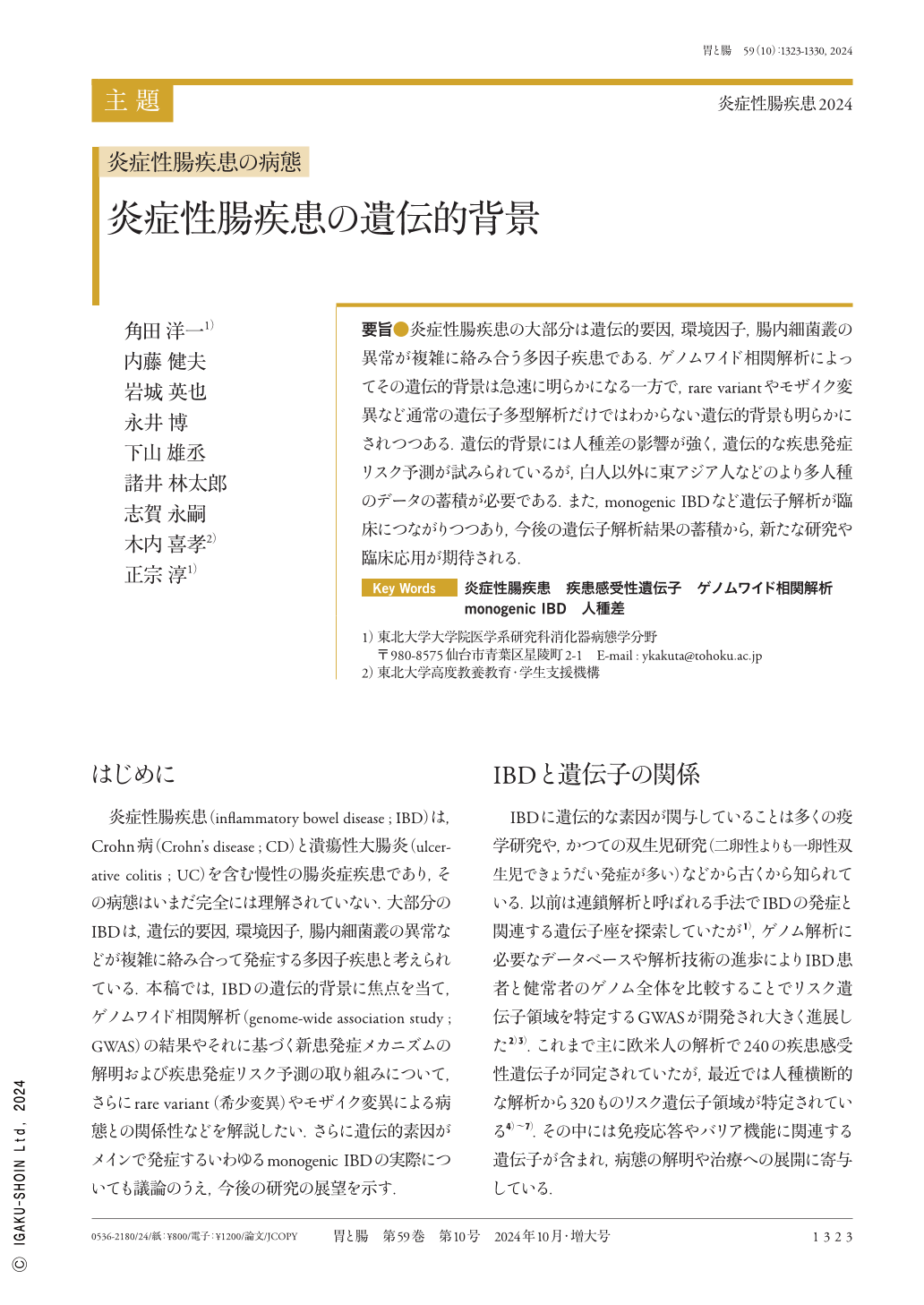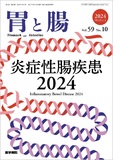Japanese
English
- 有料閲覧
- Abstract 文献概要
- 1ページ目 Look Inside
- 参考文献 Reference
要旨●炎症性腸疾患の大部分は遺伝的要因,環境因子,腸内細菌叢の異常が複雑に絡み合う多因子疾患である.ゲノムワイド相関解析によってその遺伝的背景は急速に明らかになる一方で,rare variantやモザイク変異など通常の遺伝子多型解析だけではわからない遺伝的背景も明らかにされつつある.遺伝的背景には人種差の影響が強く,遺伝的な疾患発症リスク予測が試みられているが,白人以外に東アジア人などのより多人種のデータの蓄積が必要である.また,monogenic IBDなど遺伝子解析が臨床につながりつつあり,今後の遺伝子解析結果の蓄積から,新たな研究や臨床応用が期待される.
The majority of inflammatory bowel diseases(IBDs)are multifactorial disorders caused by a complex interplay of genetic factors, environmental influences, and abnormalities in the gut microbiota. Genome-wide association studies have elucidated the genetic background of IBD. However, rare variants and mosaic mutations, which cannot be detected by conventional genetic polymorphism analysis, are also being discovered. Significant racial differences in genetic backgrounds influence the risk prediction for disease onset. Although genetic risk prediction has been attempted, more data from diverse populations, including East Asians and the predominantly studied Caucasian populations, are needed. Genetic analyses are increasingly being integrated into clinical practice, particularly in the case of monogenic IBD. The results of these genetic analyses results are expected to lead to new research and clinical applications in the future.

Copyright © 2024, Igaku-Shoin Ltd. All rights reserved.


